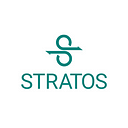Decentralization: A Pathway to Rebuilding Trust in Data Custody
Custody, originating from the financial realm, plays a vital role in safeguarding assets. Trust, the cornerstone of custody, has been the currency of custodianship for centuries. However, as technology advanced, trust began to diminish, leading to financial misbehaviour and security breaches. The same risk applies to data assets in the digital age.
The Shift to Cloud Service and Data Custody Challenges
In the era before cloud services, individuals managed their files, videos, and images on their hard disks and created duplicate copies for safety. The process is known as self-custody, providing complete authority over their data, even if it is annoying and tedious work.
Custody, originating from the financial realm, plays a vital role in safeguarding assets. Trust, the cornerstone of custody, has been the currency of custodianship for centuries. However, as technology advanced, trust began to diminish, leading to financial misbehaviour and security breaches. The same risk applies to data assets in the digital age.
With the rise of cloud services, the self-custody of data became less common. People started moving their data to the cloud, entrusting the responsibility of data custody to third-party storage providers.
Data custody refers to how data is protected and safeguarded throughout its lifecycle, that is, through its collection, transportation, storage, and usage. Data custody also defines the ownership and potential uses of collected data. Many security and ethical questions can arise as organizations collect and store increasing amounts of data generated through their day-to-day operations.
However, there are several general questions:
- Who owns data?
- How can data be used?
- Where should data be stored?
- What data protection obligations are organizations expected to meet?
- Who is responsible for data breaches, and to what degree?
The solutions to these issues can be complex and are subject to change with the introduction of new technologies, regulations, and organizational goals. However, Stratos network offers a satisfying answer to the above questions.
Data Custody in the Digital Era: Stratos Addressing Key Questions
As a decentralized Storage service provider, Stratos uses pure decentralization and transparency to rebuild the trust between the data owners and data custodians. Stratos network doesn’t own any servers or networks; it just uses hundreds of thousands of lines of code as rules to manage all the work. Stratos network is an open network; everyone can join it to provide service to others.
Let’s explore how Stratos tackles key questions related to data custody:
- Who owns data?
The data is always and only owned by the one who uploads the data to Stratos. Stratos doesn’t request any KYC process; it simply creates a wallet address and keeps the private key away, then it’s ready to upload data.
2. How can data be used?
Only the data owner can access the data, but others can also visit the data if the owner shares some data.
3. Where should data be stored?
Stratos network contains 3 layers; the Stratos chain stores ownership and verification data. The routing and index data is stored in Stratos Meta nodes, and the user’s original data is stored in the Resource nodes.
4. What data protection obligations are organizations expected to meet?
The client’s data will be sliced into multiple pieces during the uploading process, then each piece of data will have multiple replications in the different resource nodes. Stratos utilizes this algorithm to guarantee no data loss.
If any resource node is offline, the data on this resource node will be integrated to a new resource node, and the offline resource node is responsible for the data integration charge.
5. Who is responsible for data breaches?
People can’t access the data without the private key. The data owner is responsible for data breaches and keeping the private key.
The Power of Stratos Decentralized Storage
Stratos network is an ideal data custody solution. Its decentralization nature could not only cultivate trust between different parties but also transfer the responsibility from custodians back to the clients.
The clients simply keep an eye on the private key instead of storing their data on the hard disk by themselves like Self-custody.
Stratos makes data custody simple and trustworthy, eliminating potential issues and demonstrating the power of decentralization. By rebuilding the trust of data custody, Stratos has the ability to be a game changer in the massive market of data custody.
Stratos is the next generation of decentralized Data Mesh that provides a scalable, reliable, self-balanced storage, database, and computation network. Stratos strives to provide solid infrastructure and make decentralized data adoption easier for the blockchain industry and Web 3.0.
Stratos is best positioned to support data storage and adoption for developers and users in this ever-expanding digital economy. Stratos’s unique Proof-of-Traffic consensus rewards network participants and contributors with network traffic.
Stay tuned for more info and follow us at:
Twitter | Telegram Group |Telegram Announcement Channel| Medium | Discord | Reddit | LinkedIn
